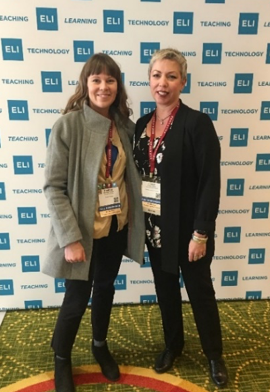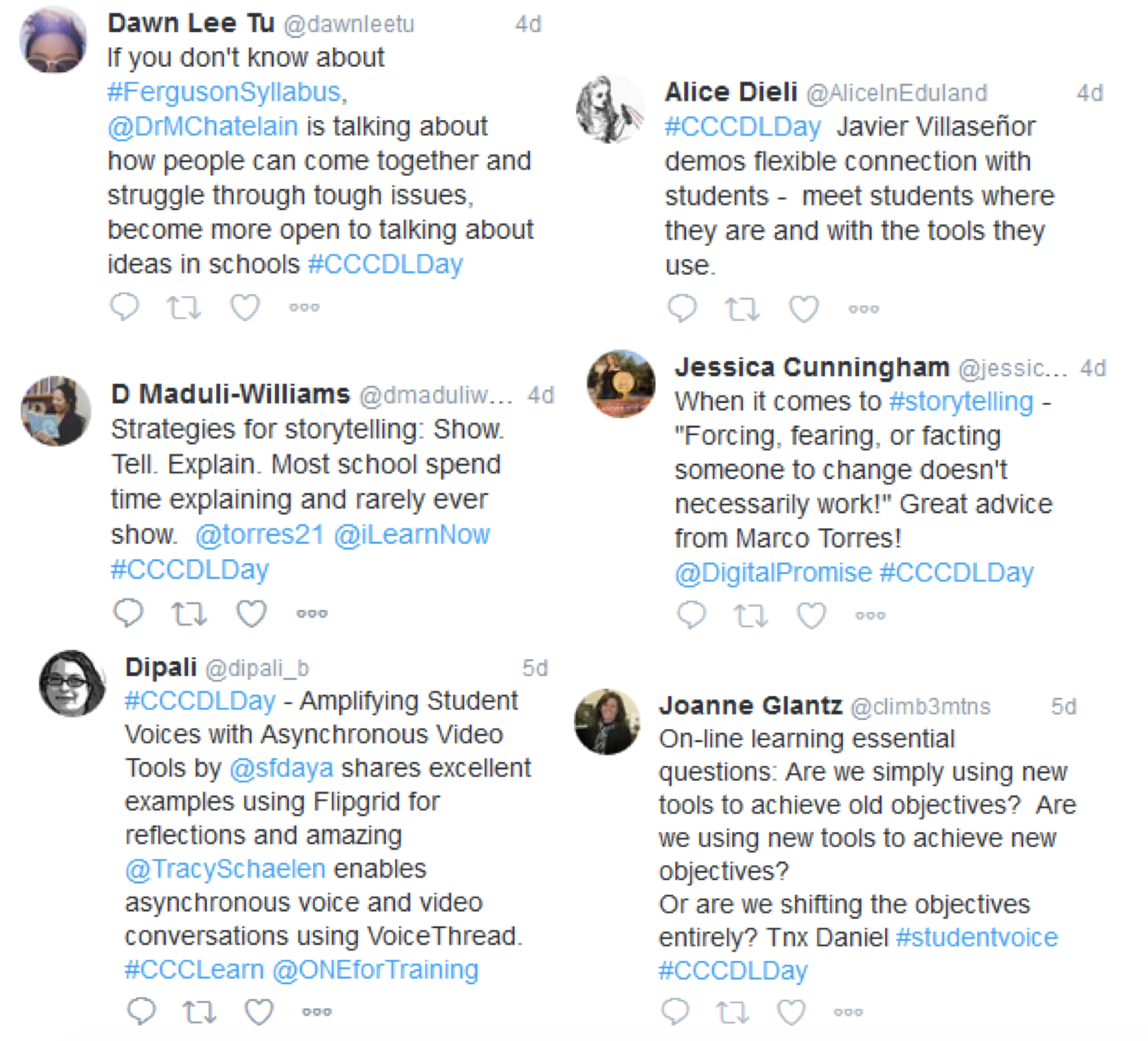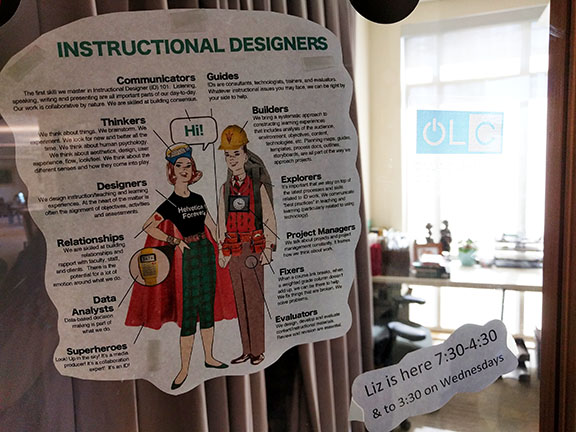Social Reinforcement
Think about your most meaningful professional development experience over the past year. What was it? Were you sitting in your office watching a recording of a past webinar? Were you at a workshop passively listening to an expert lecture to a room full of people? Or, were you engaging in dialogue with a group of your peers? Odds are, your most meaning professional development experience didn’t occur in isolation.
Professionals attend workshops, participate in book clubs, contribute to blogs, comment on blogs, reply to Tweets, and go to conferences because these events offer social reinforcement – we derive knowledge, meaning, and professional insights from our social interactions with peers. Connecting with others—in person or online—is key to professional growth.
Peer Mentoring

Pictured: Heather Garcia and Flower Darby, ID2ID buddies, at the ELI Conference in January, 2018.
One way to connect with others and develop professionally is to participate in a peer mentoring program or a professional community. My most meaningful professional development experience over the past year occurred in the ID2ID program. The ID2ID program is a peer mentoring program for instructional designers (IDs), sponsored by Penn State and EDUCAUSE. The program matches instructional designers and places them into mentor-mentee or buddy-buddy pairs, based on information provided by each ID during the application process. Throughout the program, the pairs meet regularly and work toward achieving their identified goals and program milestones. An outcome of participation in the program for me was presenting with my ID2ID buddy, Flower Darby, from Northern Arizona University, at the EDUCAUSE Learning Initiative (ELI) Annual Meeting in New Orleans in January 2018.
While this program may not be for everyone, if you’re in an instructional design or faculty support role, I highly recommend applying for the next cohort. It’s free! You have nothing to lose!
Making Connections Beyond Your Campus
With so many opportunities to engage with peers, why is it that so many of us continue to feel isolated? One reason might be that, as we continue to specialize in our fields more and more, we need to reach farther and wider to access people with professional experiences that we can relate to and learn from.
Schwier, Campbell, and Kenny (2004) indicate that most instructional design communities are “born of convenience” (82). These communities of convenience typically include people working in physical proximity to one another. Communities of convenience exist everywhere. You probably engage in more than one without even realizing it. While colleagues are a tremendous resource, it’s important to reach beyond our local communities to access the wealth of resources and knowledge beyond our institution’s walls.
We are lucky that we live in world, where we can use digital technologies to connect with our peers and build our communities. Not even two weeks ago, @ONE offered their first fully online, untethered conference. CCC Digital Learning Day was a remarkable success. Just take a look at some of the tweets sent by educators across our state and beyond about #CCCDLDay:

These folks got something from their digital community that they wouldn’t have experienced otherwise.
Building Your Network
So where do you go to build your network? @ONE is a great start. Their professional development offerings are designed to foster community among educators. As a current participant in their Reflective Writing Club, #CCCWrite, I am grateful for the opportunity to hear from my fellow educators, have a dialogue with them, and reflect on my practice in a supportive environment.
Another great place to get involved is the Canvas Community. The CCC Group is a place where you can connect with other California Community College educators using Canvas, ask them questions, and make feature requests. You can also find an extensive line-up of CanvasLive events in the Canvas Community.
Below you will find some other professional communities that may be of interest, especially if you are in an instructional design role. Please add to this list by sharing your own resources in the comments for this post.
So, get out there. Connect with a professional community. Find a professional learning network. Apply to be a part of the next ID2ID cohort. Sign up for an @ONE class. Get connected on Twitter. See you online!




